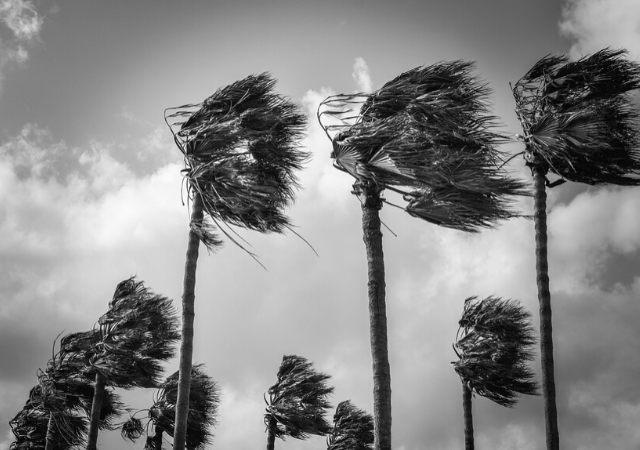The 2019 hurricane season is upon us. Tropical waves have already made their trek from the African coast through the Caribbean and towards the United States. If you’ve been living in this region for an extended period, you should be very familiar with all that’s required to prepare for the June start of the annual tropical storm season.
However, if you’re not too sure about what to expect and what you should do, here is some help. These tips highlighted by the top weather experts will set you on track for the six month long season.
Preparing for a Hurricane or Tropical Storm (CDC)
The Centers for Disease Control and Prevention (CDC) has an excellent list of hurricane preparedness tips that were compiled from the Centers for Disease Control and Prevention. Ideally, preparation for the season should have started several weeks ago. This is especially pertinent since in many years (including 2019) some storms formed well in advance of the official June 1 tropical storm start date.
The tips range from
- making sure that you are adequately prepared for a hurricane;
- stocking your home and vehicle with enough emergency supplies for you, your family and pets;
- creating a family disaster plan that can be quickly enacted if a catastrophic event occurs;
- taking smart precautions if flooding occurs (which includes avoiding flooded areas and not venturing into bodies of water);
- taking the health and medical conditions of older family members and neighbours into consideration;
- being mindful of carbon monoxide emissions from generators and running vehicles
- ensuring that devices that can detect this gas are working; and remaining safe after a hurricane or tropical storm.
Hurricanes (Ready)
Ready is a United States of America based public service campaign. It prepares people for emergencies such as natural disasters and man-made emergencies. At the very minimum it advises people to:
- be aware of the possible emergencies and the ways to respond to them;
- create a family emergency plan that considers the needs and capabilities of the family members;
- build an emergency kit
- participate in community emergency preparation activities.
For hurricanes occurring in the Atlantic or Pacific, residents should be aware which threats can impact them. All USA coast lines and countries in the Atlantic or Pacific oceans may be impacted by hurricanes.
The tips provided by this resource outline:
- what you should do if you are under a hurricane warning;
- steps that you can take to prepare now and well in advance of a tropical storm or hurricane;
- what to do when a hurricane is 36 hours away;18 – 36 hours away; 6 – 18 hours away; 6 hours away from your area.
Additionally there are tips on how to survive during a hurricane or tropical storm; and how to remain safe after the hurricane has passed.
How to Prepare for Hurricane Season (Insurance Information Institute)
The Insurance Information Institute, an independent and objective insurance oriented body that aims to improve the public’s understanding of insurance, created a thorough guide that outlines how people can prepare for hurricane season. This guide outlines a number of tips and suggestions that you can use to help minimise the impact of the storm.
Some of the important tips are:
- how to plan your evacuation route in advance of a major storm event;
- the types of non-perishable emergency supplies that should be kept on hand;
- creating a home inventory of your personal possessions for yours and insurance purposes;
- reviewing your insurance policies to assess whether or not it is adequate in the event of damage to your home;
- taking preventative steps to protect your home
If you are preparing your home for a hurricane, your list of things to do should include:
- hurricane proofing windows and doors by installing storm shutters and covering them with plywood
- cutting overgrown shrubs and trees and removing dead limbs
- removing garbage and debris from surroundings to reduce the likelihood of them becoming deadly missiles during hurricane season.
Learn How to Prepare Your Household for Hurricane Season (American Red Cross)
The American Red Cross provides invaluable service in the form of relief and support to people facing unbearable crises and helping people prepare for the aftermath of emergencies. Their services include disaster relief, blood donation processes, health and safety training and certification, international aid and support programmes and supporting military service members, veterans and their families.
The American Red Cross blog has suggested three simple tips that can create the biggest impact in the event of a tropical storm or hurricane. They are:
- Building an emergency kit that contains water, non-perishable food and other core supplies for all members of the family;
- Getting together with family members and creating and practicing an evacuation plan that can be easily put into action when the time arises;
- And staying informed by taking note of your neighbourhood’s emergency response plan which should include being knowledgeable about local shelters and which ones accept and do not accept pets.
2019 Hurricane Season (Insurance Institute for Business & Home Safety)
The Insurance Institute for Business and Home Safety is an independent research and communications organisation that aims to provide more resilient communities and keep the insurance industry informed. Their focus includes:
- the formulation of construction standards;
- providing flood and hail guidance for home and business owners;
- maintenance suggestions;
- business continuity planning;
- detailed roofing guides;
- water intrusion, wildfire, wind and winter weather guidance;
- emergency preparedness and response planning.
The 2019 Hurricane Season Guide contains several helpful and timely tips which are informative and practical. Useful resources include:
- A hurricane checklist;
- An analysis of often overlooked storm surge risks;
- Tips on how to protect the home from wind; and
- A video on how to avoid flying debris dangers.
There are also specific tropical storm and hurricane preparedness tips on:
- preparing to evacuate
- preparing your surroundings
- protecting windows and doors
- reducing water damage risks
For further reading, guides are available on reducing hurricane risk; how to use generators safely; and staying safe after the storm.
6 Ways to Prepare Now For Hurricanes (AccuWeather)
AccuWeather is one of the leading weather monitoring and forecasting organisations in the world. It reaches over 1.5 billion people daily through a combination of communication methods including radio, television, newspaper and the internet. The AccuWeather network enables the organisation to reach more people in more places. It is also a communication channel for providing up-to-the-minute weather updates to customers nationally, regionally and internationally.
In a recent post, AccuWeather suggested 6 tips that everyone living in any of the hurricane belts can use to prepare for hurricanes now. These smart tips include:
- creating an evacuation plan, even if you’re not in an evacuation area;
- buying supplies well ahead of time and not waiting until the hurricane is on your door step;
- checking your insurance coverage and making changes to ensure that you have the right coverage of standard home insurance, flood insurance and renters’ insurance where necessary;
- making copies of important documents and keeping in a secure waterproof container;
- protecting your home by carrying out inspections on the roof, outer walls and windows and doors;
- backing up electronics and storing data in a remote location.
Hurricane Season Preparations
Many of these tips highlight the importance of being prepared for the hurricane season. Even if you have never been affected or impacted by a tropical storm or hurricane, it’s in your best interest to be ready for anything. Past hurricanes have shown that you do not have to be in the direct impact zone or living on the coastline to feel the wrath of a storm.










